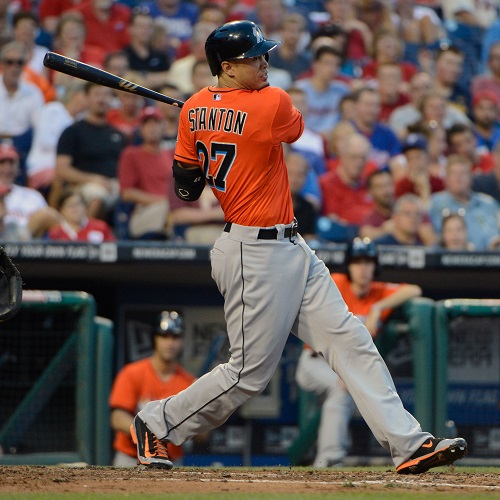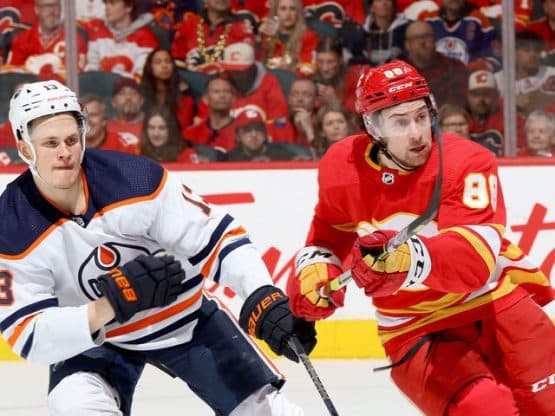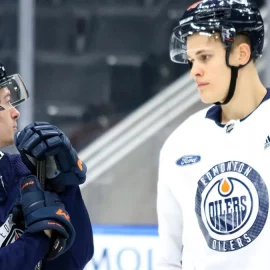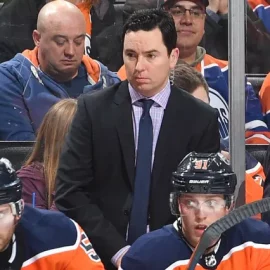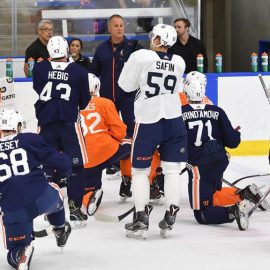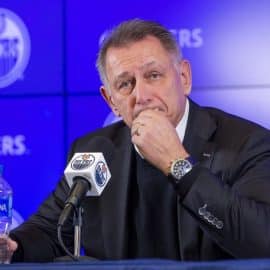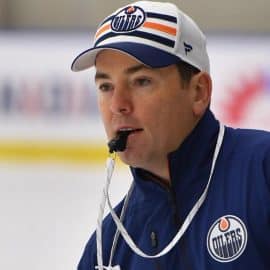What does a leader do? It’s a question that is asked around professional sports all the time. It was a question that was asked an awful lot in Oil Country when Connor McDavid was named the youngest captain in NHL history. Answering the question doesn’t come down to one concrete answer.
Prior to Connor McDavid, it seemed like the Oilers were destined to hand the “C” over to the recently departed Taylor Hall. I thought Hall had the drive and determination to be a great captain in this league, but I had some blinders on. Now, I don’t intend on bashing Taylor Hall, but he had some habits that aren’t good traits to own as a leader of a team, let alone a team in shambles.
I believe a leader needs to do one thing over anything else and that is to take over a game and shift momentum. Connor McDavid had that on display during Wednesday’s game against the Flames. When the Flames were pushing the play, Connor would use his inhuman speed and either draw a penalty or produce a scoring chance. When the Flames scored two consecutive shorthanded goals to tie the game, Connor took over and scored the tie breaking goal. He followed that up with another blaze of speed that resulted in a penalty shot that resulted in a goal.
In last night’s game, the Oilers went down early and seemed to be half asleep at the wheel. Then, when they needed a goal to get themselves back in it, Connor found a way.
Imagine if Connor hadn’t done that.
An all too common cloud would hang over the Oilers bench en route to a complete collapse in play. It happened too often with the Taylor Hall rebuilt Edmonton Oilers, and as you know Hall wasn’t able to change the course of those games. Like Oscar Klefbom said, he didn’t play his best games against the best teams.
When Peter Chiarelli took over as general manager, he was adamant that he would use the first season to evaluate the organization in all capacities. One thing that I believe he noticed was that the team lacked that kind of leadership. He knew that Taylor Hall was obviously the best player on the club (omit McDavid) and that he was the de facto leader. That de facto leader was not able to change the course of the game when things went south, and things went south a lot.
We’ve beat this to death a few times, but the culture on this team needed a shakeup, and needed it fast. While analytically and figuratively the Hall for Larsson swap was lopsided, this trade also signalled the transition from the Taylor Hall era to the Connor McDavid era.
A leader doesn’t have to do it all himself, but he needs to set the standard for the rest of the team to follow. Connor McDavid is always giving it 110 per cent, and when the followers see that, they want to give it 120 per cent.
With veterans like Milan Lucic, Andrej Sekera, Jordan Eberle, Ryan Nugent-Hopkins, Patrick Maroon and Benoit Pouliot around him, McDavid has a supporting cast of legitimate NHL players to push the pace when he sets it. These guys know what it takes to win in this league, and they can show the rookies, ‘tweeners, and inexperienced players the habits they’ll need to obtain to become good NHL hockey players.
So what does a leader do? A leader sets the bar, enforces the effort, and proves it on the ice. He doesn’t have to say a word in the dressing room. He just needs to dictate what is acceptable on the ice. Connor McDavid does this every night.
Through two games, Connor McDavid has already produced three goals and three assists to lead his team to a 2-0 start.
That’s what a leader does.
Add The Sports Daily to your Google News Feed!
